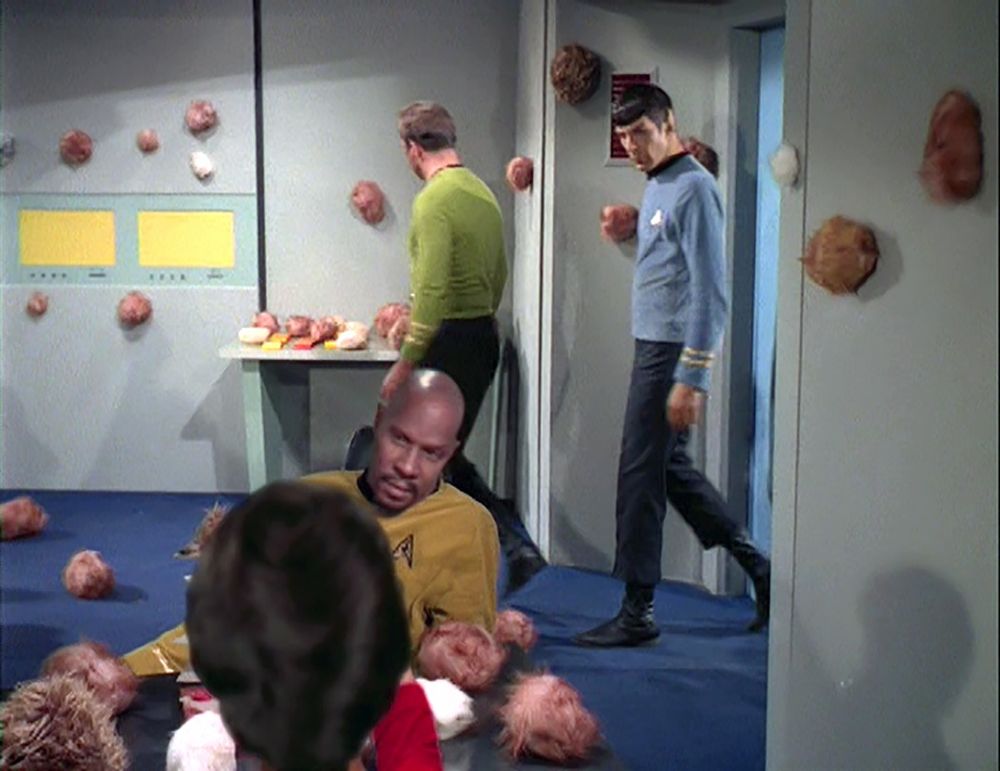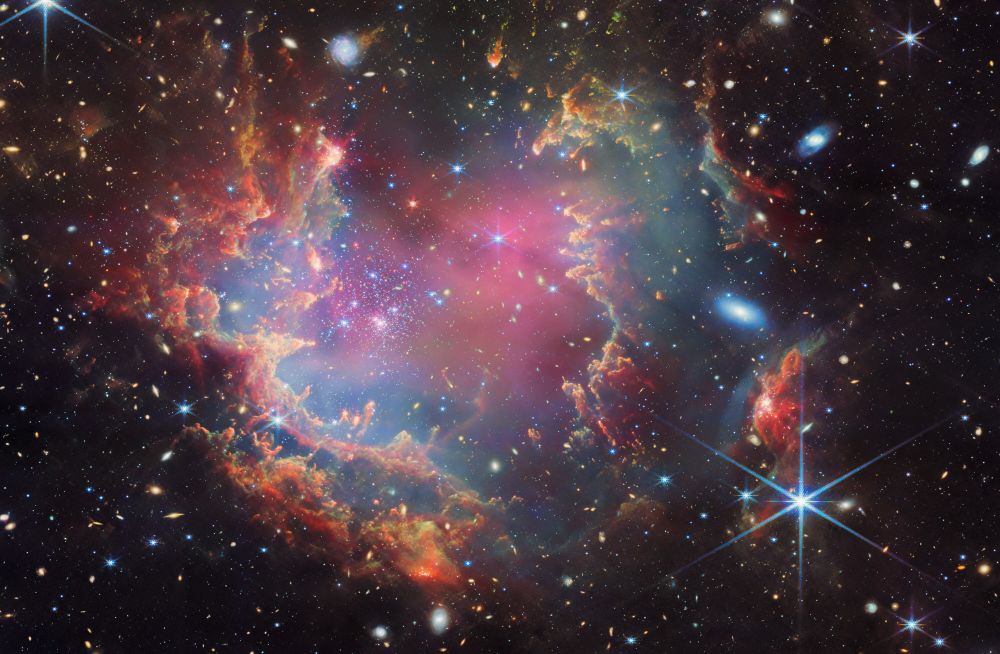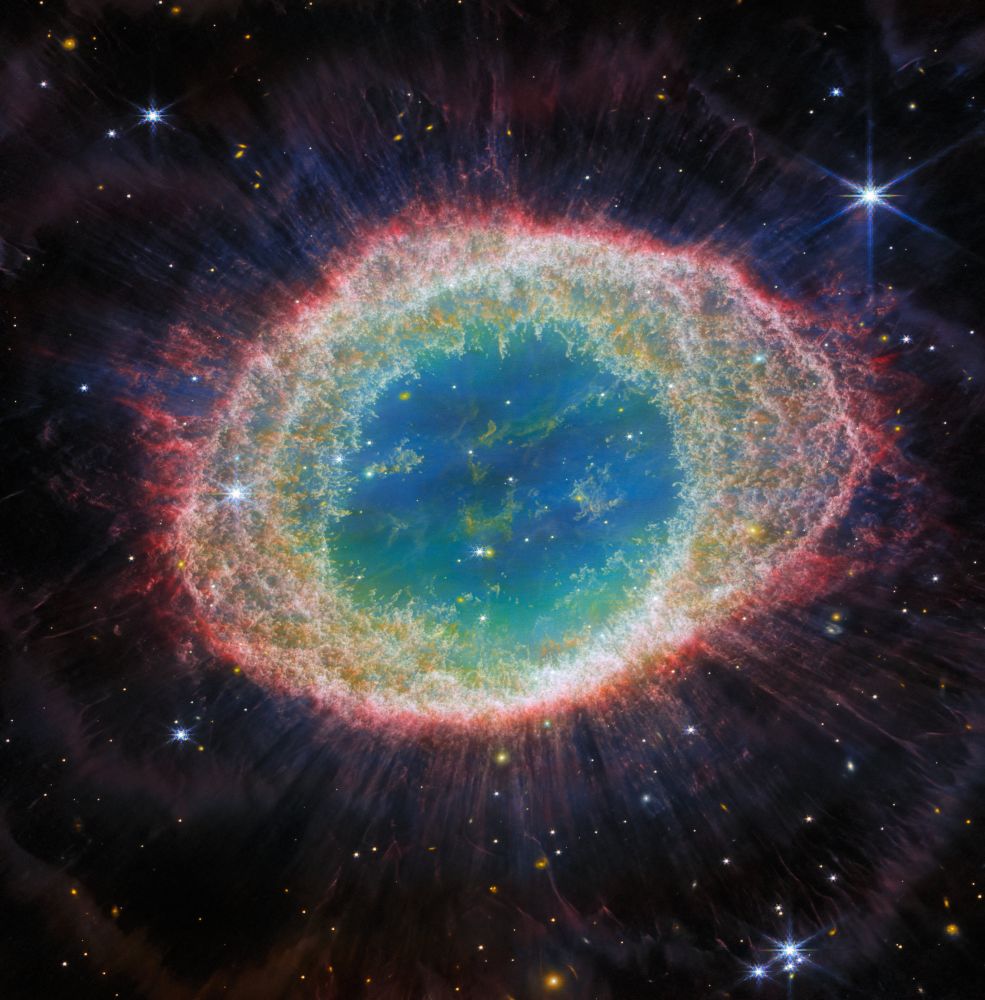Well he nailed the role, so it definitely comes across how much fun he's having.
03.10.2025 09:23 — 👍 8 🔁 0 💬 0 📌 0Andrew Ruperto
@unoficialo.ca.bsky.social
空手家 》Night.Owl 》Savutano 》6inSix 》💖 Be Well, Stay Safe 😸
@unoficialo.ca.bsky.social
空手家 》Night.Owl 》Savutano 》6inSix 》💖 Be Well, Stay Safe 😸
Well he nailed the role, so it definitely comes across how much fun he's having.
03.10.2025 09:23 — 👍 8 🔁 0 💬 0 📌 0
NGC 6188 is a large emission nebula located some 4000 light years distant in the Southern constellation Ara. This giant molecular cloud is being illuminated by the young star cluster NGC 6193 which in this image appears in the centre almost as if suspended in front of a blanket of nebulousity littered with thousands of other dimmer stars in a multitude of colours. At the centre of this cluster lies an intensely bright pair of stars; the O-type giants HD 150135 and HD 150136. The latter is in fact itself an extremely close binary with a confirmed third component in an outer eccentric orbit of between 2950 and 5500 days. This triple star system is one of the most massive in our galaxy with the three components containing 64, 40 and 35 solar masses respectively. The cluster is very young, not older than 3 million years, and the intense radiation from the massive stars is slowly eroding the surrounding gas and dust away, sculpting it into the striking forms seen in this image. Within these clouds new stars are currently being born and in places some have already begun to light up the nebula from within. Image details: Date: 12th, 13th and 14th June 2012 Exposure: LRGB: 250:105:105:105m, total 9hrs 25mins @ -30C Telescope: 10" Serrurier Truss Newtonian Camera: QSI 683wsg with Lodestar guider Filters: Astrodon LRGB E-Series Gen 2 Taken from my observatory in Auckland, New Zealand
NGC 6188 and NGC 6193 in Ara - From Rolf Wahl Olsen - https://flic.kr/p/cgYXQu
03.10.2025 05:00 — 👍 104 🔁 22 💬 1 📌 0
Snoozy party🎃💤
26.09.2025 15:35 — 👍 476 🔁 163 💬 2 📌 0Water park management sandbox game 'Aqua Mundo' officially announced.
Wishlist here: store.steampowered.com/app/2773790
#indiegame #steam #indiegames
That's exactly what it felt like. Cast is solid, writing on-point.
26.09.2025 07:34 — 👍 4 🔁 0 💬 0 📌 0New Blood felt off somehow (but still enjoyable), they nailed the vibe in Resurrection, though.
26.09.2025 07:33 — 👍 1 🔁 0 💬 0 📌 0Since this was the first time we've seen anything, I'm surprised they showed as much as they did. Been cooking for so long, they'll show more when they're ready, but they teased some good elements. Hopefully it all comes together.
25.09.2025 20:59 — 👍 0 🔁 0 💬 1 📌 0So they reskinned the Arkham games, got it.
25.09.2025 20:56 — 👍 0 🔁 0 💬 0 📌 0Web-slinging, rooftops & combat, all things we've seen before, the only thing they really advanced was the graphics.
25.09.2025 20:38 — 👍 0 🔁 0 💬 1 📌 0I mean they did, but okay.
25.09.2025 20:36 — 👍 0 🔁 0 💬 1 📌 0That's fair, but you could swap PS2 with N64 & be describing Spider-Man, also. You're right though, wait and see. Hopefully it's like Max Payne, but with claws n shit. Excuse my language.
25.09.2025 09:59 — 👍 0 🔁 0 💬 1 📌 0😍
25.09.2025 00:57 — 👍 728 🔁 61 💬 15 📌 2
Gus is on his side on the flat platform of the sunroom cat tree. His back legs are extended in a stretch that goes all the way down to his toes! His front legs are curled toward himself
Stretchy toes!
17.09.2025 18:54 — 👍 135 🔁 15 💬 7 📌 0Autumn
#gamedev #unity

Filming "Trials and Tribbleations"

Scene from "Trials and Tribbleations"

Filming "Trials and Tribbleations"

Scene from "Trials and Tribbleations"
Behind the scenes on the complicated sets of #StarTrek DS9's "Trials and Tribble-ations."
14.09.2025 15:10 — 👍 260 🔁 61 💬 4 📌 6whole nother day coming tomorrow, they’re saying
15.09.2025 02:23 — 👍 140 🔁 25 💬 17 📌 1▓▓▓▓▓▓▓▓▓▓▓▓▓▓░░░░░░ 70.00%
13.09.2025 12:00 — 👍 170 🔁 55 💬 1 📌 14Word of the Day is ‘snerdle’ (19th century): to stay warm and still beneath the covers for as long as humanly possible.
13.09.2025 08:10 — 👍 3694 🔁 756 💬 139 📌 135
This visualization provides a three-dimensional perspective on Hubble's 25th anniversary image of the nebula Gum 29 with the star cluster Westerlund 2 at its core. The flight traverses the foreground stars and approaches the lower left rim of the nebula Gum 29. Passing through the wispy darker clouds on the near side, the journey reveals bright gas illuminated by the intense radiation of the newly formed stars of cluster Westerlund 2. Within the nebula, several pillars of dark, dense gas are being shaped by the energetic light and strong stellar winds from the brilliant cluster of thousands of stars. Note that the visualization is intended to be a scientifically reasonable interpretation and that distances within the model are significantly compressed. Download here: hubblesite.org/newscenter/archive/releases/2015/12/video/ Credit: NASA, ESA, G. Bacon, L. Frattare, Z. Levay, and F. Summers (Viz3D Team, STScI), and J. Anderson (STScI) Acknowledgment: The Hubble Heritage Team (STScI/AURA), A. Nota (ESA/STScI), the Westerlund 2 Science Team, and ESO NASA image use policy. NASA Goddard Space Flight Center enables NASA’s mission through four scientific endeavors: Earth Science, Heliophysics, Solar System Exploration, and Astrophysics. Goddard plays a leading role in NASA’s accomplishments by contributing compelling scientific knowledge to advance the Agency’s mission. Follow us on Twitter Like us on Facebook Find us on Instagram
Hubble Space Telescope Celebrates 25 Years of Unveiling the Universe - From Goddard Space Flight Center - https://flic.kr/p/sgGC11
09.09.2025 23:00 — 👍 179 🔁 39 💬 0 📌 1▓▓▓▓▓▓▓▓▓▓▓▓▓░░░░░░░ 69.04%
10.09.2025 00:00 — 👍 141 🔁 31 💬 3 📌 18
Cygnus Wall, part of the North America Nebula in Cygnus. Imaged with APM 140mm, asi1600mm, and ZWO SHO filters. 3.5 hours integration.
Cygnus Wall - From Ryan Kinnett (rkinnett.bsky.social) - https://flic.kr/p/2mor5kA
08.09.2025 05:00 — 👍 175 🔁 34 💬 1 📌 1The view overhead… 👀
07.09.2025 19:33 — 👍 230 🔁 48 💬 6 📌 5
In what appears as a celestial dreamscape, a blue and black sky filled with brilliant stars covers about two thirds of the image. The stars are different sizes and shades of white, beige, yellow, and light orange. Across the bottom third of the scene is a craggy, mountain-like vista with spire-like peaks and deep, seemingly misty valleys. These so-called mountains appear in varying shades of orange, yellow, and brown. The soaring spires are going up, up, up, where a wispy, ethereal white cloud stretches horizontally across the scene. Steam appears to rise from the mountaintops and join with this cloud. At the top, right corner of the image, a swath of orange and brown structure cuts diagonally across the sky.

A star cluster is shown inside a large nebula of many-coloured gas and dust. The material forms dark ridges and peaks of gas and dust surrounding the cluster, lit on the inner side, while layers of diffuse, translucent clouds blanket over them. Around and within the gas, a huge number of distant galaxies can be seen, some quite large, as well as a few stars nearer to us which are very large and bright.

This image of the Ring Nebula, taken by Webb’s Near-Infrared Camera, appears as a distorted doughnut. The nebula’s inner cavity hosts shades of blue and green, while the detailed ring transitions through shades of orange in the inner regions and pink in the outer region. The ring’s inner region has distinct filament elements. Stars litter the scene, with a particularly prominent star with 8 long spikes in the top right corner.

The image is divided horizontally by an undulating line between a cloudscape forming a nebula along the bottom portion and a comparatively clear upper portion. Speckled across both portions is a starfield, showing innumerable stars of many sizes. The smallest of these are small, distant, and faint points of light. The largest of these appear larger, closer, brighter, and more fully resolved with 8-point diffraction spikes. The upper portion of the image is blueish, and has wispy translucent cloud-like streaks rising from the nebula below. The orangish cloudy formation in the bottom half varies in density and ranges from translucent to opaque. The stars vary in color, the majority of which, have a blue or orange hue. The cloud-like structure of the nebula contains ridges, peaks, and valleys – an appearance very similar to a mountain range. Three long diffraction spikes from the top right edge of the image suggest the presence of a large star just out of view.
my favorite jwst images UPDATED
08.09.2025 01:59 — 👍 363 🔁 66 💬 4 📌 4Agreed.
05.09.2025 10:07 — 👍 1 🔁 0 💬 0 📌 0Explore four recent stories showcasing the SETI Institute's role in groundbreaking discoveries and global scientific collaboration, including a hidden moon at Uranus and a new mineral on Mars. 🧪 🔭 👩🔬
Read the full stories: www.seti.org/news/seti-in...

This new #JWST of stars being born just dropped, and it is GORGEOUS
04.09.2025 19:13 — 👍 212 🔁 64 💬 5 📌 3▓▓▓▓▓▓▓▓▓▓▓▓▓░░░░░░░ 67.47%
04.09.2025 06:00 — 👍 27 🔁 5 💬 0 📌 1

You can get that pink ps5 if you wanted, slap a jiggly puff on the side & that beaut is ready to go. The chroma indigo is my fav, though 🤩
03.09.2025 08:31 — 👍 1 🔁 0 💬 0 📌 0That's so cool, you should do it!
03.09.2025 08:12 — 👍 0 🔁 0 💬 0 📌 0An ‘ultracrepidarian’ (19th century) is one who loves to give their opinion, at length, on matters they know nothing about.
02.09.2025 07:31 — 👍 2864 🔁 607 💬 152 📌 118